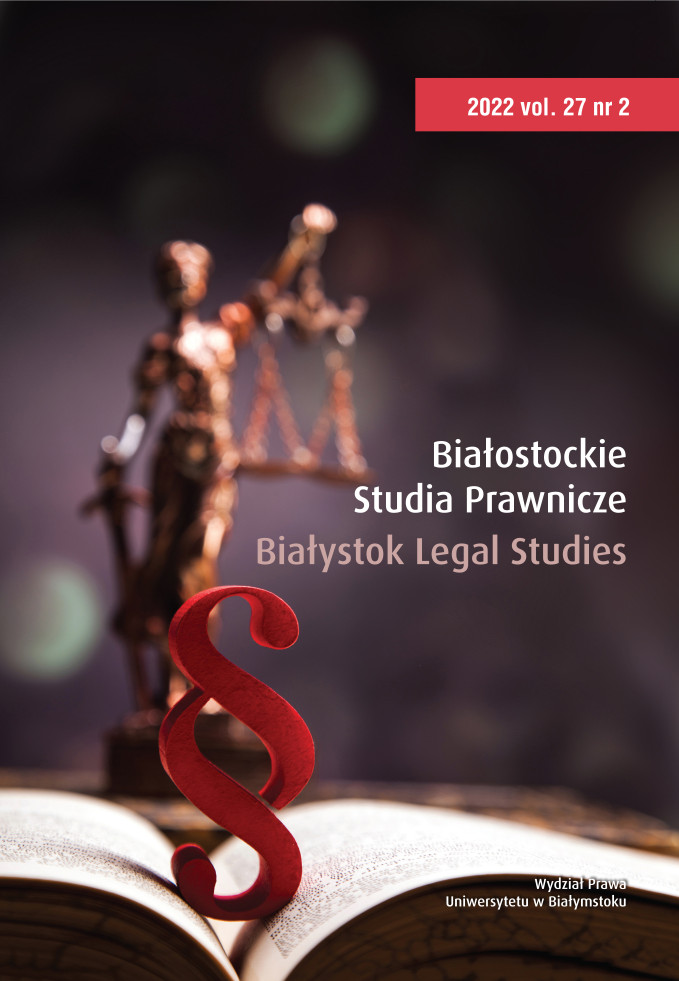Exercise of the Right to Defence in Criminal Proceedings during the COVID-19 Pandemic with Particular Reference to the Relation Between the Accused and the Defence Counsel
Słowa kluczowe:
accused, criminal proceedings, defence counsel, defence secrecy, online hearing, online trial, right to defenceAbstrakt
The aim of this article is to present the legal solutions adopted in criminal proceedings during the COVID-19 pandemic and their impact on the implementation of the right to defence, focusing, in particular, on the relation between the accused and the defence counsel. During the pandemic, online trials and hearings became widespread and communication with the courts via email developed. Issues of confidentiality between the accused and his/her defence counsel, as well as access of the defence counsel to files, were analysed, particularly in cases related to pretrial detention. The new solutions have been evaluated, possibilities of their use after the end of the pandemic have been indicated and postulates as to the desired directions of changes have been formulated. The issues addressed are relevant today and extremely important in the sphere of public law, as criminal liability is proved during criminal proceedings. In general, it should be assessed positively that the COVID-19 pandemic has become an opportunity to introduce new legal solutions for the modernisation of criminal proceedings. However, some of these regulations do not fully meet the objectives set for them, hindering, through the adoption of specific solutions and practices, the proper implementation of certain key procedural principles, primarily the right to defence.Bibliografia
Brzezowski Ł., Udział prokuratora w rozprawie i posiedzeniu zdalnym, ‘Prokuratura i Prawo’ 2021, no. 3.
Dudka K. (ed.), Kodeks postępowania karnego. Komentarz, WKP 2020.
Fingas M., Bezpośrednie stosowanie dyrektywy 2012/13 w zakresie dostępu obrony do akt sprawy w procesie karnym – glosa do postanowienia Sądu Apelacyjnego w Gdańsku z 8.04.2020 r. (II AKz 207/20), ‘Palestra’ 2020, no. 12.
Gori P., Pahladsingh A., Fundamental rights under COVID-19: a European perspective on videoconferencing in court, ‘ERA Forum’ 2021, no. 21, https://doi.org/10.1007/s12027–020–00643–5.10.1007/s12027-020-00643-5
Gutowski M., Kardas P., Giezek J., Tajemnica adwokacka w świetle wyzwań współczesności – uwagi wprowadzające, ‘Palestra’ 2019, no. 7–8.
Klepczyński A., Kładoczny P., Kubaszewski P., Wiśniewska K., Raport Helsińskiej Fundacji Praw Człowieka, Czy koronawirus SARS-CoV–2 zaatakował system wymiaru sprawiedliwości w sprawach karnych?, Warsaw 2021, https://www.hfhr.pl/wp-content/uploads/2021/11/Raport-COVID-a-proces-karny-PL.pdf.
Kosowski J., Elektronizacja jako kierunek rozwoju procesu karnego?, (in:) R. Olszewski, A. Małolepszy (eds.), Quo vadit processus criminalis? Rzeczywistość i wyzwania, Warsaw 2021.
Kowalski S., O potrzebie upowszechnienia doręczania pism sądowych za pośrednictwem poczty elektronicznej, (in:) R. Olszewski, A. Małolepszy (eds.), Quo vadit processus criminalis? Rzeczywistość i wyzwania, Warsaw 2021.
Kulesza C., Obrońca, Tajemnica obrończa, (in:) P. Hofmański (ed.), System Prawa Karnego Procesowego, tom VI, Strony i inni uczestnicy postępowania karnego, C. Kulesza (ed.), Warsaw 2016.
Kulesza C., Rozprawa zdalna oraz zdalne posiedzenie aresztowe w świetle konwencyjnego standardu praw oskarżonego, ‘Białostockie Studia Prawnicze’ 2021, no. 3 (vol. 26).
Lach A., Rzetelne postępowanie dowodowe w sprawach karnych w świetle orzecznictwa strasburskiego, Warsaw 2018.
Mierzwińska-Lorencka J., E-rozprawa w sprawach karnych w związku z regulacjami z tarczy 4.0, LEX/el. 2020.
Misztal P., Zdalne posiedzenia aresztowe w trybie art. 250 §§ 3b–3h Kodeksu postępowania karnego. Uwagi de lege lata i de lege ferenda, ‘Studia Prawnoustrojowe’ 2021, no. 54.10.31648/sp.7188
Olszewski R., Wprowadzenie, (in:) R. Olszewski, A. Małolepszy (eds.), Quo vadit processus criminalis? Rzeczywistość i wyzwania, Warsaw 2021.
Opinion of Helsinki Foundation for Human Rights of 14 June 2020 r. do Druku Senackiego no. 142, https://www.hfhr.pl/wp-content/uploads/2020/06/druk-senacki-nr-142-uwagi-HFPC-1.pdf.
Opinion of Legislative Committee at Supreme Bar Council (Komisji Legislacyjnej przy Naczelnej Radzie Adwokackiej) of 2 June 2020, https://www.adwokatura.pl/admin/wgrane_pliki/file-20200608-u-o-doplatach-do-oprecent-kredytow-tarcza-04-sm-24–20–29964.pdf.
Pietrzak M., Tajemnica adwokacka jako fundamentalny element systemu ochrony praw i wolności, ‘Palestra’ 2019, no. 7–8.
Sanders A., Video-Hearings in Europe Before, During and After the COVID-19 Pandemic, ‘International Journal for Court Administration’ 2020 no. 12(2), http://doi.org/10.36745/ijca.379.10.36745/ijca.379
Skorupka J. (ed.), Kodeks postępowania karnego. Komentarz aktualizowany, 33rd edition, Legalis.
Stefański R.A., Zabłocki S., Kodeks postępowania karnego. Tom III. Komentarz do art. 297–424, WKP 2021.
Szurman M., Korzeniak M., Poufność w kontakcie z obrońcą na wstępnym etapie postępowania karnego – analiza regulacji 73 § 2 oraz art. 245 § 1 Kodeksu postępowania karnego w świetle standardów konstytucyjnych, unijnych i konwencyjnych, ‘Palestra’ 2020, no. 9.
Świecki D. (ed.), Kodeks postępowania karnego. Tom I. Komentarz aktualizowany, B. Augustyniak, K. Eichstaedt, M. Kurowski, D. Świecki, LEX/el. 2021.



